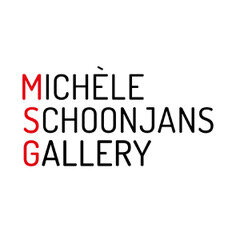Ellen Dhondt
Born in 2000 in Belgium, works and lives in Antwerpen (B)
About the Artist
.Ellen Dhondt is a contemporary visual artist based in Belgium, working primarily in painting. Her artistic journey began at the Heilig-Graf Secondary Art Academy in Turnhout, where she earned her diploma in 2018. That same year, she enrolled in the renowned KASK School of Arts in Ghent, completing a Bachelor’s degree in Fine Arts with a focus on painting in 2021. She continued her education at KASK with a Master’s program in Fine Arts, under the mentorship of artist Nel Aerts, finishing in 2023.
Ellen’s work has been featured in numerous exhibitions, both solo and group shows, throughout Belgium. Her solo exhibitions include “ELLIE DOLLY’S HOUSE” (2024), “LET THEM EAT CAKE” (2020), and “ELLIE DOLLY IS BORN” (2023), each showcasing her distinctive visual language and playful, often subversive, artistic persona.
Her participation in group exhibitions further highlights her active presence in the contemporary art scene. She has shown work at venues such as Het Bos in Antwerp (“VRUCHTBARE GROND”), De Kunsthal in Ghent (“BUY LOCAL”), and De Warande in Turnhout (“MIKS”), among others. These exhibitions reflect her engagement with diverse artistic communities and themes ranging from kitsch aesthetics to social commentary.
ARTCONTEST WINDOW - I Know an Old Lady Who Swallowed a Fly
ArtContest and Michèle Schoonjans are pleased to invite you to discover the installation “Picky Eating”, created by Belgian artist Ellen Dhondt, winner of the 2024 edition. An active member of ArtContest since 2007, Michèle Schoonjans is opening her gallery as a showcase for ArtContest during the summer of 2025.
“Picky Eating”, or food refusal, is often one of the first expressions of autonomy in children — a discreet yet meaningful act of resistance, expressed through rejection. In this series, Dhondt draws inspiration from the visual logic of divided plates designed for picky eaters, evoking a psychology of order, control, and emotional fragmentation.
Her practice frequently employs the visual language of childhood: paper dolls, educational charts, and learning materials. Within this universe, she introduces Ellie Dolly, an alter ego through whom she explores autobiographical narratives. This figure becomes a vehicle to question the complexity of female identities while addressing broader cultural taboos surrounding the body, consumption, and self-discipline.


